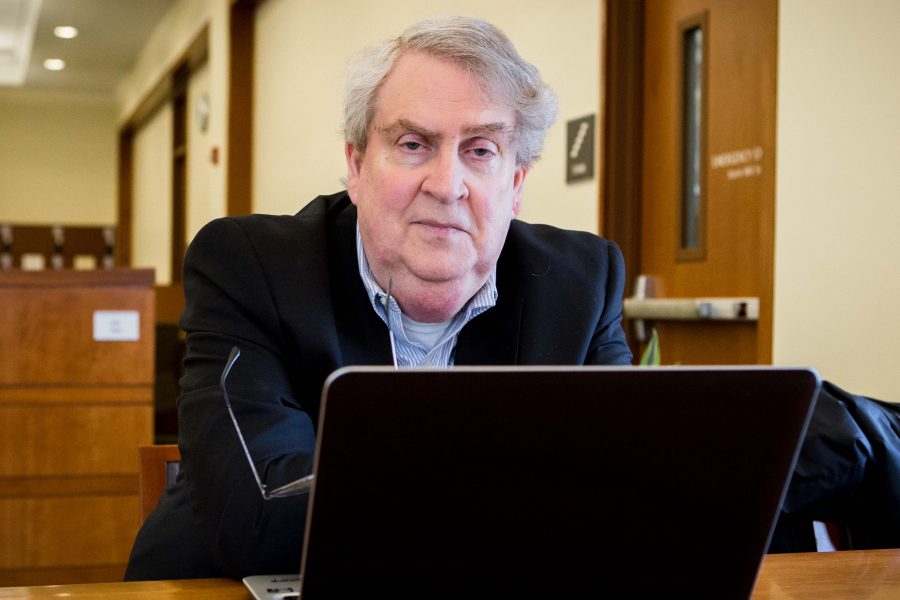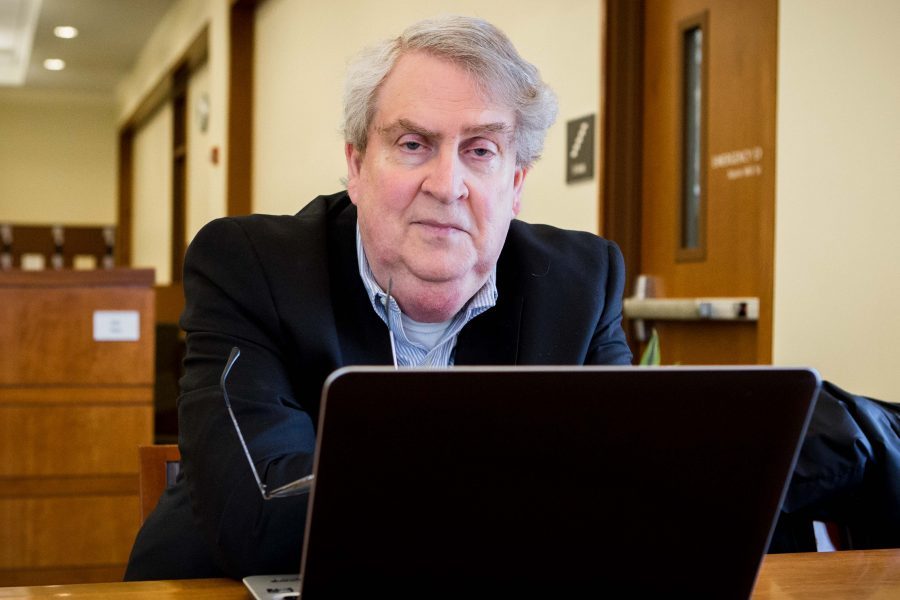
The issue of same-sex marriage was argued before the Supreme Court last week in two separate cases, both of which carry potential long-term, national implications for the hot button topic. Locally, reaction to the hearing was varied, with both sides showing support on social media and other platforms.
Paul Nolette, an assistant professor of political science, teaches constitutional law and civil rights and liberties classes to Marquette undergraduates.
Nolette, an expert on courts and public policy, explained the basic arguments underlying the two cases.
“The main argument for opponents of the Defense of Marriage Act and Proposition 8 is that these laws violate the U.S. Constitution’s guarantee of equal protection of the laws by discriminating against people on the basis of their sexual orientation,” Nolette said.
To show their support for same-sex couples, many students changed their Facebook profile pictures to a red equals sign, which was meant to symbolize a call for marriage equality. This social media movement was initiated Wednesday by the Human Rights Campaign, an organization founded in 1980 to support equality for lesbian, gay, bisexual and transgender Americans.
Tyler Tucky, a sophomore in the College of Arts & Sciences, was among those who changed their profile picture.
“I changed my picture because I think the message of equality needs to be vocalized more, it was a movement, and, throughout the day, it was inspirational to see all the reasons for changing pictures,” Tucky said. “I did it because as a gay young man I believe everyone should be allowed to love whomever they love.”
At Marquette, the Gender Sexuality Alliance has been active in the push for same-sex marriage and is hopeful about the Supreme Court’s ruling.
“We are cautiously optimistic regarding the potential rulings; we hope that the justices recognize that love between two people is not restricted to heterosexual couples and that gay individuals should have their relationships recognized to the full extent of the law,” GSA said in a statement Monday.
Nolette also outlined the opposing viewpoint.
“Opponents disagree that this is a violation of equal protection,” Nolette said. “According to this side of the argument, sexual orientation has never been treated similarly to race for the purposes of equal protection. After all, definitions of marriage as between a man and a woman have been around for centuries.”
Additionally, Nolette said, some opponents of same-sex marriage argue that the issue should be decided by voters and legislators, not an unelected court.
The chairman of the U.S. Conference of Catholic Bishops, Archbishop Salvatore Cordileone of San Francisco, attended and led prayers at the March for Marriage in Washington, D.C. March 26. The USCCB issued a press release urging the Supreme Court to uphold DOMA and Proposition 8.
“It is my hope and prayer that the Supreme Court will uphold Proposition 8 and DOMA, respecting the very nature of the human person and the nature of marriage as the union of one man and one woman,” Archbishop Cordileone said in the statement.
Nolette said the oral arguments before the court about Proposition 8 seemed to suggest that the court may be “looking for a way out of deciding” about same-sex marriage in a broad sense.
“It appeared to me that the Court is not prepared to strike down same-sex marriage bans across the country but is also not entirely comfortable with a decision upholding Proposition 8.” Nolette said. “The Court can do something known as ‘dismissing the case as improvidently granted,’ which would essentially mean that the Court thought it was too early to decide this case.”
GSA wrote that the two cases argued in front of the Supreme Court last Wednesday are only a step in their goal of gender equality.
“While we are looking forward to a future where same-sex couples are equally recognized under the law, we realize that this is still an uphill battle, that one court ruling will not overturn years of societal discrimination,” their statement said. “Rather, changing the hearts and minds of individuals will happen on a personal level. As Martin Luther King, Jr. once said, ‘Hate cannot drive out hate; only love can do that.’”
Nolette predicted that, if either case is ruled on its merit and not dismissed as improvidently granted, the ruling would likely come close to the end of this Supreme Court’s term – sometime around June 27. If dismissed, Nolette said the ruling could come at any time, but likely not until at least May in order to allow for dissent to the dismissal.




